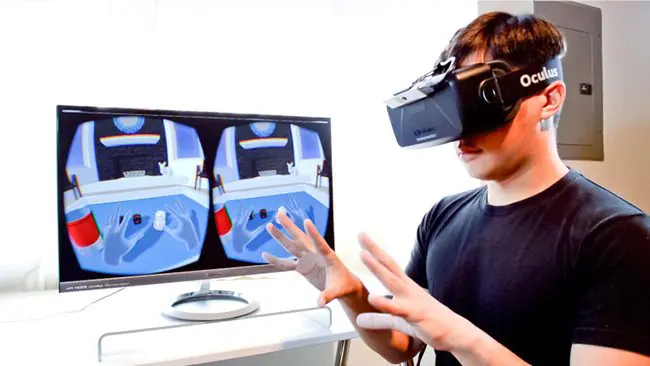Virtual Reality (VR) is finally hitting the mainstream after decades of disappointing results and a lack of advancement in the industry.
Headsets have come down in price, content is becoming more readily available, and VR is being used in a host of different industries and for many different purposes. It inherently offers users a chance to enjoy, or possibly endure, experiences that they would not otherwise have the opportunity to participate in. The user can become anybody they want in any environment imaginable.
As well as the escapism that gaming has to offer, and the immersion that VR films and entertainment has to offer, the technology has many practical applications, and these are being highlighted in a host of ways.
Almost anything that can be done in the real world can be done in a virtual world. For a business, this can include things like customer services, as well as HR, although it is important that the modern business doesn’t use VR for the sake of it. Like any business decision, the risks and rewards, as well as the benefits of using VR over non-VR solutions, should be considered.
Virtual Tours
Arguably one of the simplest uses of VR is in the creation of a virtual tour, especially if you have access to the area that you wish to offer a tour of. For example real estate companies can take video footage of a property, and then provide VR access to potential tenants or buyers. This gives a much clearer understanding of the house space than a gallery of 2D images that have been taken in such a way to push the benefits of a property.
A VR property tour that shows every angle of every room can be extremely beneficial, and some real estate companies even allow users to add their own furniture or design the rooms so that they really can picture themselves living in the space; beneficial to the buyer, who can ensure that they have room for everything, and beneficial to the estate agent because it can help encourage more sales.
Travel agents can offer a virtual experience of a holiday destination, of holiday cottage destinations, and other locations.
Affordable Experiences
Holidays aren’t the only experience that can benefit from the VR treatment. VR experience days exist that allow you to take control of aircraft and spaceships, while a VR racing experience means that you can take the wheel in any of hundreds of sports cars and racing cars around dozens of tracks that are realistically recreated in a virtual environment. Such VR experiences offer access to an experience that you wouldn’t ordinarily be able to enjoy.
They can be used by businesses to offer first hand experience of something unachievable or difficult to achieve. For example, selling tickets on a commercial spaceflight might prove easier if the company is able to provide a virtual representation of what the individual will experience while on that flight.
Alternatively, some companies make a business out of these experiences. VR racing centres are just one example – rather than paintballing, you can visit VR centres that enable team battle style wars and fights.
Experiential Shopping
Shopping is another area where VR advances are already evident, and they are in operation in households and behind personal VR headsets.
Clothes stores could allow users to try on clothing, alter sizes, and customise their clothes. Some car showrooms already offer the possibility of virtual test drives. They don’t give a precise feeling of how the car drives, but they can be used to determine whether the car offers the kind of room needed for the kids in the back and the pushchair and dog in the boot.
Education And Training
Virtual classrooms enable remote learning, while still providing the benefits of peer communication and collaborative learning. The book, Ready Player One, and subsequent film adaptation has shown off some of the ways in which a virtual world could be used in this way, and it would effectively level the educational playing field.
As well as offering a virtual classroom environment, VR can be used to teach highly specific skills. For example, surgeons need experience in operating, but this experience is obviously difficult to achieve without risk to health. A VR training suite allows the surgeon to gain virtual experience in a similar setting to the one they will be working in when qualified.
Prototyping
Engineers and designers, including architects, not only use virtual reality to help them create and optimise designs. They can also apply mathematical and algorithmic parameters and stress test items, objects, and even buildings and constructions, without risking the health and safety of others, and without potentially wrecking expensive products that have yet to hit market.
Designs can also be shared with other users, and multiple designers and engineers can work on the same project at the same time. Mistakes can be rectified and repaired, ideas can be tested, and products can be perfected and optimised before being manufactured.
VR is taking off in a big way, and it is not only the commercial entertainment market where it is gaining in prominence. VR is used in education and training, healthcare, and even in military exercises. Above are just some of the ways in which the modern business can use this technology, and additional uses will surface as the technology continues to improve even further.
VR-Simulators.com is a VR racing centre in Glasgow, offering access to thousands of combinations of car and track for users to enjoy while remaining safe and comfortable. They are the first 5D racing centre of their kind, and have recently expanded to include additional rigs. Book for yourself, or arrange a group booking for parties or educational purposes today.


